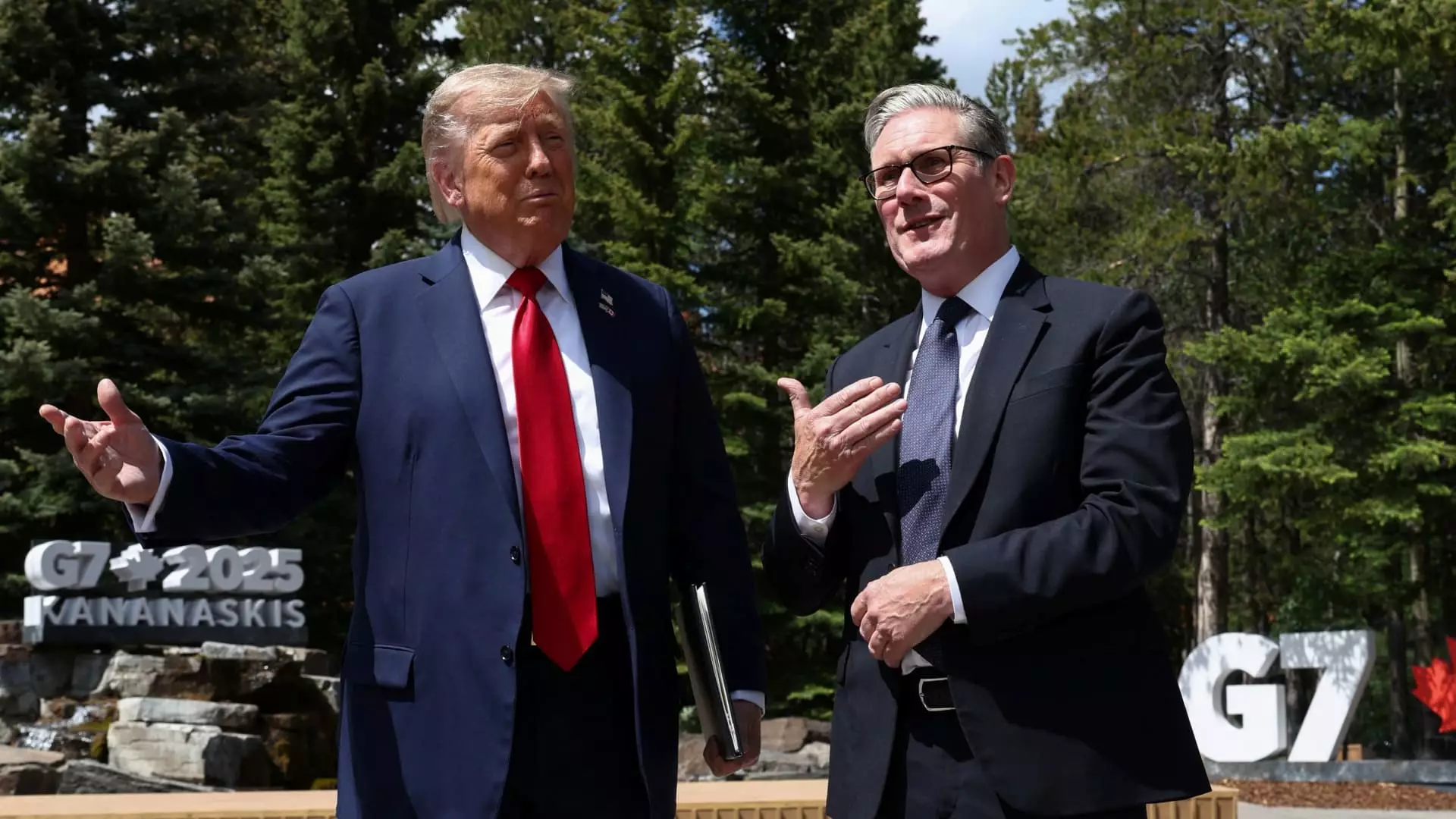The recent agreement between U.S. President Donald Trump and British Prime Minister Keir Starmer regarding the reduction of some tariffs on imports marks a significant moment in transatlantic trade relations. Announced on the sidelines of the G7 Summit in Canada, this deal exemplifies the tenuous nature of post-Brexit Britain’s international trade strategy. While the reduction in tariffs on automobiles and the aerospace sector may sound promising, the overall context presents concerns that cannot be overlooked.
Firstly, it’s essential to commend Mr. Starmer and his administration for navigating the politically charged waters left by Brexit. The elimination of tariffs on UK aerospace, as well as the adjustment of quotas on British automobiles, could be vital for economic recovery. However, a critical examination reveals that the agreement is more of a band-aid than a comprehensive solution. The unresolved issues surrounding steel and aluminum tariffs suggest that the U.S.-UK trade relationship is still hanging by a thread.
Miscommunication and Misrepresentation
Perhaps one of the most striking moments during the announcement was Trump’s slip-up when he confused the agreement with the European Union instead of explicitly stating it was solely with the UK. Such a misstep is emblematic of the broader communication issues that often plague Trump-era diplomacy. While he describes the relationship with Britain as “fantastic,” the reality is that this deal seems more like a desire to pacify than a genuine, reciprocating partnership.
Starmer’s enthusiastic portrayal of the agreement as “a very good day” raises further questions about the optimism surrounding it. Is it truly a strong bilateral agreement, or merely a strategic diplomatic gesture? The gap between the celebratory rhetoric and the tangible outcomes is observable. The fact that tariffs on industries like pharmaceuticals remain unaddressed reveals the lack of substantive progress and indicates potential vulnerabilities within the UK’s negotiating posture.
Conditional Alliances and Economic Vulnerabilities
Even more troubling is the conditional nature of the proposed quotas on steel and aluminum, which hinge precariously on the UK’s ability to demonstrate security along its supply chains. This reflects a disconcerting trend of negotiated trade being contingent upon vague security assurances rather than mutual economic benefit. The U.S.’s imposition of quotas and tariffs—often seen as blunt instruments of protectionism—hampers the spirit of free trade these agreements purport to support.
Additionally, the comparison of tariff rates for US imports of British cars versus those imposed on other nations creates a disturbing precedent. The preferential treatment for British carmakers, which allows them to avoid higher tariffs, may alienate other trade partners and perpetuate insularity. This compromise could be interpreted as transactional, where the U.S. seeks short-term gains without regard for long-term geopolitical implications.
Questions of Reciprocity and Future Prospects
Looking beyond the immediate implications of this deal, we must consider its impact on future trade negotiations. While both leaders have touted the agreement as a win, the unanswered questions surrounding reciprocity—especially in sensitive sectors like pharmaceuticals—suggest that true balance has yet to be achieved. The promise of “significantly preferential outcomes” for the UK pharmaceutical sector sounds good in theory, but skepticism looms regarding the resolution of ongoing U.S. investigations into industry practices.
Moreover, as international economic dynamics evolve, the reliance on such piecemeal agreements raises the question of whether they can withstand external shocks. Will the UK emerge as a resilient trade partner, or will it find itself continually reacting to unpredictable tariff adjustments?
While the agreement has brought an air of optimism to trade discussions, a closer inspection helps illuminate the potential pitfalls underscoring this arrangement. The worry is that it could serve as a façade for deeper, underlying issues that require diligent negotiation and attention in order to foster a truly robust and reciprocal trade relationship between the U.S. and the UK.

Leave a Reply